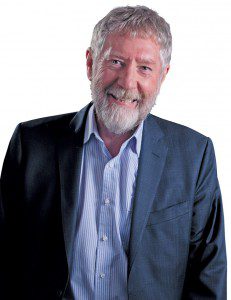THE ACT auditor-general has challenged Canberra schools to lift their game. Rather than a simplistic comparison across jurisdictions, the report compares schools from similar socio-economic status.

Comparing “like with like”, ACT public schools are suddenly not looking so good.
However, limiting comparison on school performance largely to reading, writing and numeracy has many shortcomings. Such a narrow focus loses so much of what schools can and should be. It undermines the role of our best teachers and tells just a small part of the story. The auditor-general’s report, in examining just four criteria of school and school system performance, did not take into account the wider, more important picture.
The report is a wake-up call. However, instead of the conservative national obsession with reading, writing and numeracy, the call should recognise that parents and communities expect schools and teachers to deliver a much wider range of educational attainment.
A 2016 report found “after taking account of intake and context differences, ACT government schools on average achieve negative results on every measure”. The report by the Centre for International Research on Education Systems at Victoria University used relatively narrow NAPLAN data. The outcome was in marked contrast to previous reporting that has regularly found ACT schools as nationally high performers.
In addition to the reading, writing and numeracy, key elements for well-rounded educational attainment must include physical activity, respect for others, scientific method, good citizenship, technological proficiency, history, literature, critical thinking, drama, nutritional understanding, research and evidence, art, environment and much more. Effective schools and effective teachers, no matter their own discipline, invariably deliver on these. Yet narrow public assessment tools barely touch on such a wide range.
There is simply not appropriate recognition of the effective work of the vast majority of our teachers. The status of teachers is not valued, recognised, rewarded nor remunerated appropriately. Recognised, rewarded, remunerated are the most important of the three “Rs” to improve educational outcomes across the spectrum.
Our children, our grandchildren and our future are what we entrust into the hands of our teachers. Our future, their future and the future of society.
The most important outcome of the auditor-general’s latest report is to identify the need to seriously rethink our own expectations of educational systems, educational attainment and how they should be judged.
In the ACT, under the 2004 Education Act, it is school principals who have primary responsibility regarding student performance. This comes under some criticism from the auditor-general’s report.
However, it is not as though improvements are not being tackled. The Education Directorate released “Great Teaching by Design” just last year to assist schools and teachers to improve broader educational attainment.
The key is better recognition and pay for our teachers. However, it should also mean a requirement for higher educational standards, more autonomy in the classroom and recognition of professionalism as a key to effective teaching.
The idea is not new even in Australia. One of the most celebrated and effective education systems in the world is in Finland. Around 25 years ago that country dropped its obsession with constant centralised testing and control in favour of improving the status and professionalism of teachers.
Finland set out to create a new culture for education. According to David Crouch in “The Guardian”, the new culture was “characterised by trust between educational authorities and schools, local control, professionalism and autonomy. State inspections were abandoned”. Teachers were required to have higher academic credentials to the level of master’s degree and they became treated and paid like other professionals such as doctors and engineers. Competition to become a teaching professional soared with seven per cent of applicants in 2015 making it into one of the teaching courses in Helsinki.
The outcome is clear. According to Crouch: “Finland’s teachers have kept the nation near the top of the influential Pisa performance rankings since they were first published in 2001.”
The choice for the ACT is stark. Either continue narrow testing and central control or trust our teachers and build a stronger, professional teaching force with appropriate reward, recognition and remuneration.
Michael Moore was an independent member of the ACT Legislative Assembly (1989 to 2001) and was minister for health.
Who can be trusted?
In a world of spin and confusion, there’s never been a more important time to support independent journalism in Canberra.
If you trust our work online and want to enforce the power of independent voices, I invite you to make a small contribution.
Every dollar of support is invested back into our journalism to help keep citynews.com.au strong and free.
Thank you,
Ian Meikle, editor





Leave a Reply